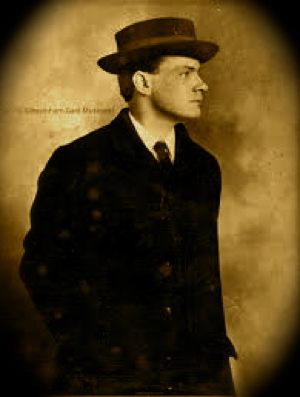
Just a small, cryptic personal burst of a post today . . .
I have been slower than I would like writing here, partly because a third book on Ireland is erupting in me. (After the first two, I have spoken of here.) It is far too soon to say anything definite about my emerging manuscript. Still, a small hint may be ventured . . .
I am haunted, haunted by the ghosts of Patrick Pearse and Éamon de Valera.
Pearse and de Valera, of course, were two of the rebel leaders of the 1916 Easter Rising in Dublin which led to Irish independence in 1922.
It was by all accounts a hopeless rising. Pearse and de Valera knew they stood no hope against the mighty British Empire. Within a week they were rounded up. Pearse and the other rebel leaders were immediately executed by the British—as they fully realised they would be – thereby becoming martyrs in the process.
Mysteriously, however, de Valera, alone, was spared and went on to become a ‘founding father’ of the Irish Republic, spending thirty four years as either prime minister or president of Eire.
What compelled them to this self-immolation? It is a huge, complex matter we cannot adequately address in a cryptic little burst like this …
However, I have been struck by Desmond Ryan writing Pearse was concerned that:
The [Irish] people had lost their souls and were being vulgarised, commercialised, anxious only to imitate the material prosperity of England.
Indeed, that seems to have been a main disquietude for the Irish revolutionaries. They were concerned that the soul of Ireland was slowly being extinguished by British government, British Capitalism and British education and that the only way to save her was a ‘mad, hopeless’ insurrection.
But, for several decades, it seems their ‘mad, hopeless’ insurrection actually succeeded. Despite their deaths, an Irish Republic was born in which their Gaelic and Catholic values were cherished and protected.
Again, for several decades . . .
And now?
Well, as I write my third book, I cannot help but see the ghost of Patrick Pearse before me.
And he is listening to raucous rock and roll that he could never have imagined in a thousand years.
The refrain of this racket which repels him, however, seems terribly apropos to all his fears of materialism in 1916.
It is Bachmann Turner Overdrive singing: ‘You Ain’t See Nothin’ Yet!’
And Patrick Pearse is weeping, weeping, weeping … weeping for the soul of Ireland. For indeed, he had seen ‘nothing yet’, at least compared to Ireland today.
In my own way, I weep with him. And my new manuscript is being born of my tears.
Buying Books at Amazon Through These Links Gives Us a Commission. This Supports Our Apostolate. Thank You if You Can Help Us Like This!

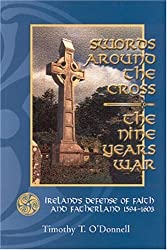

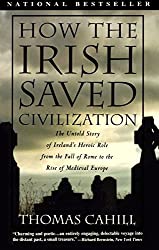
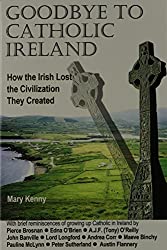
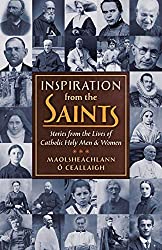
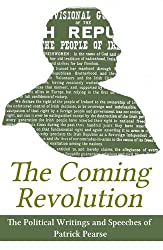
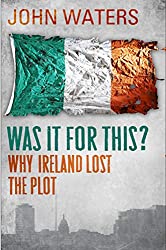
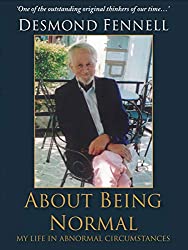
Comments
comments are currently closed
4 responses to “Patrick Pearse and Bachmann Turner Overdrive”
Interesting thoughts. I have been thinking a lot myself in recent weeks how a Catholic impulse has run in parallel with other non-Catholic impulses through centuries of Irish nationalism. I haven’t actually done research on this, but off the top of my head you have Joseph Mary Plunkett (Grace Gifford also converted to Catholicism after his execution), Daniel O’Connell, whose heart was buried in Rome. and of course St Oliver Plunkett. On the other hand you have the leaders of the United Irishmen, influenced by the Masonic French Revolution yet still courageous men and women of good will, who wanted to unite Catholics and Protestants under the banner of Irish freedom. And we cannot leave out the anti-Christian occultism of Yeats and Maud Gonne (not sure if Lady Gregory was a fellow traveller in this regard), who nonetheless were nationalists (Gonne fervently so). The evidence on James Connolly and Catholicism is inconclusive.
Then there is the story of Michael Mallin:
http://www.irishcentral.com/news/100th-birthday-of-fr-joseph-mallin-last-surviving-child-of-the-1916-rising-222944421-237775161.html
I toured Kilmainham a few years ago, and the guide had been present when Fr Joseph Mallin’s visited Kilmainham. He told us that during the visit Fr. Mallin told how he remembered at age 2 visiting his father in prison the evening before his execution. Michael Mallin gave his son a watch during the visit, which Fr. Mallin then donated to the Kilmainham jail museum.
With respect to De Valera, I was told as a child that the reason he escaped execution was because of his American citizenship.
A. Thank you for the moving info and link, regarding Fr. Mallin. – as well as adding richness and complexity to my brief post, which was only meant as a “burst” from me. (Incapable that is, of doing real justice to these things.)
A brief note on Dev. He himself thought that his American birth was not the reason why. I think the jury remains out on this mysterious reprieve.
I am pursuing the area you raise as earnestly as I can. I find Feaghal McGarry’s book The Rising excellent on the Catholic piety that accompanied the Rising. The rebels were praying the Rosary every hour in the occupied G.P.O . …!
But, as you rightly point out, there are many complex threads here.
Still, I cannot get away from this statement in Roy Forster’s hugely well researched and masterful Modern Ireland:
I recall your other comment to my wife Kim. I tend to think you and I are thinking about some very similar themes here in Ireland and I am very grateful for your comments.
Roger,
Thank you for your kind words and for the tips on Foster and McGarry. I haven’t read either book, but that paragraph from Foster is compelling. As I mentioned in an earlier comment, I have wondered to what degree was Catholicism, prior to the 1990s, a social convention in Ireland? The late Emmet Larkin coined the term “devotional revolution” to describe the fervent embrace of religion as an expression of national identity in response to foreign oppression, Was the soul of the Rising, as described by Foster, Catholic first or Gaelic first? I think it will be a long time before these questions are answered with any satisfaction. The Irish are too busy celebrating the throwing off of chains from 15 centuries of oppression by that Horrid Evil Institution the Roman Catholic Church to reflect on questions like this with any degree of discernment.
Finally, I forgot to add Roger Casement, Catholic convert, to the list. Maud Gonne converted to Catholicism as well, but I don’t know enough about her biography to know how (and whether) she reconciled this conversion with her occult beliefs and practices. Did she leave the New Age behind, or did she practise syncretism? Always one for drama and theatrics, perhaps the conversion was merely a way for Gonne to identify more closely with the oppressed whom she championed. Interesting questions, anyway.
Roger and Kim,
A lot to think about here when trying to take the long view on the current state of Catholicism in Ireland:
http://irishecho.com/2011/02/hibernian-chronicle-the-devotional-revolution-2/